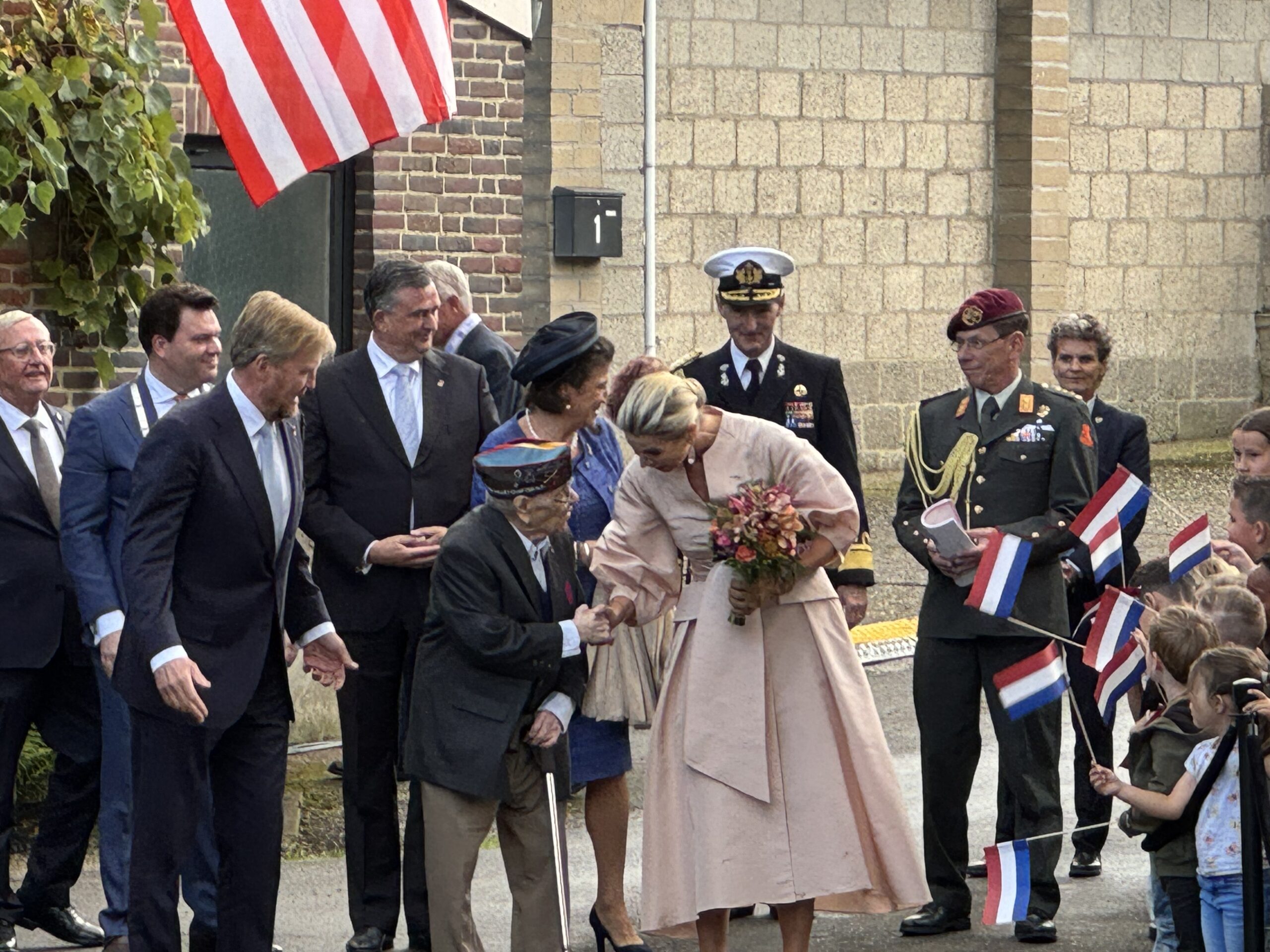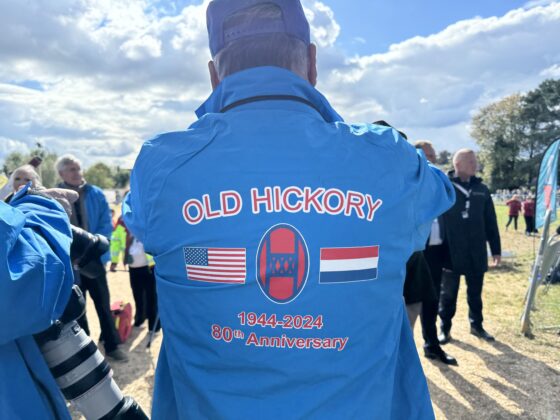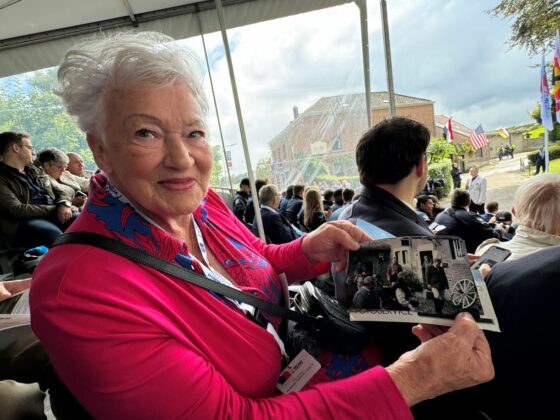Veterans and eyewitnesses remember liberation of Limburg in 1944
Senay Boztas
Eighty years ago, on September 12th 1944, the sounds of battle faded over Mesch.
This little village of several hundred souls, in a spit of the Netherlands sandwiched between Belgium and Germany, was the place where Allied boots first hit Dutch ground. It would take eight months before the rest of the country was liberated and the Nazis had surrendered.
But that afternoon, school principal Jef Warnier was one of the first to creep up from his cellar. “He spotted a soldier crawling through a hole in the hedge,” recounted Eijsden-Margraten mayor Alain Krijnen. “His uniform told him that he was an American. And Jef, being a hospitable Limburg native, greeted the liberators with the words: ‘Welcome to the Netherlands.’”
At a ceremony on Thursday attended by 12 Dutch men and women who still remember that day, Limburg welcomed 10 of the surviving American veterans from the 30th Infantry Division, known as Old Hickory. It is the first region of the Netherlands to celebrate 80 years of freedom after World War II, remembering its debt to those soldiers and to those who died to liberate Europe.
In a historic army jeep, king Willem-Alexander and queen Màxima took the route from the Belgian border that those Allied soldiers marched, alongside 99-year-old veteran Kenneth Thayer – one of the first to cross it eight decades ago.
A flame of freedom was lit by local athletes who had run the soldiers’ path from Belgium, local schoolchildren laid flowers and there were speeches and musical performances including 1940s wartime hits.
Afterwards, as the king and queen took a walk around the village, Thayer recalled that time, and his 8,288 compatriots who are buried at the nearby American War Cemetery and Memorial in Margraten.

Humble
“I felt very humble indeed,” he told Dutch News. “It wasn’t just me. There were hundreds who didn’t make it and [many] of the fellas who didn’t make it are here. It cost a lot of American Allied lives to liberate this country, this country was very deserving and has always showed its appreciation. We have always been best friends.”
Like the wave of troops who continued their advance to Maastricht, Aachen and to the Ardennes, his memories of his first steps on Dutch soil are ones of battle. “I was 18, young and stupid,” he said. “The Dutch people were always wonderful to us, and considering the fact that we were carrying guns and artillery was firing over our heads, accepting that to get rid of the German army.
“Of course, we were there in combat – I remember that part. Our artillery tried to do the least amount of damage possible to buildings and houses. It’s a terrible thing when you have to damage your friends to free them. But the Dutch treated us so well – and they were friendly from day one.”
He had clear memories of meeting people as they fought, slowly liberating more of the Netherlands. “Many of them spoke English,” he said. “Even little children would run up to us, speaking English…better than some of our soldiers! What I could never understand was elderly women, 90-year-old women riding bicycles. But – no gasoline!”

Netta Keijenberg-Schuijren, 87, was there when the Allied troops liberated Mesch and said three soldiers stayed in her house. “I can remember a lot,” she said. “I was seven years old and as a child, I was out in the street a lot. I found a bomb on the street, at the entrance to a meadow where the Americans were, and went to my father. He told a man on our street who was from the army, and they came and blew it up.”
She often played near the American soldiers’ kitchen – and was sometimes given green cans of real butter. “Meat, the things they had left over they gave to my mother for our family,” she said. “But behind our house was a field and I saw very ugly things there too. My brother disappeared one day and when we went to look for him, with my mother and a neighbour, we came to a dip full of dead bodies, blood everywhere, Americans, Germans.”
But she said that the liberation events brought back good memories, as well as strong emotions. She and other eye-witnesses met the Dutch royals as well as some of those veterans, who were travelling for perhaps the last time for these remembrance events. “I met a man from America who was 103,” she added. “He kissed me on both cheeks. And I thanked him.”
Thank you for donating to DutchNews.nl.
We could not provide the Dutch News service, and keep it free of charge, without the generous support of our readers. Your donations allow us to report on issues you tell us matter, and provide you with a summary of the most important Dutch news each day.
Make a donation